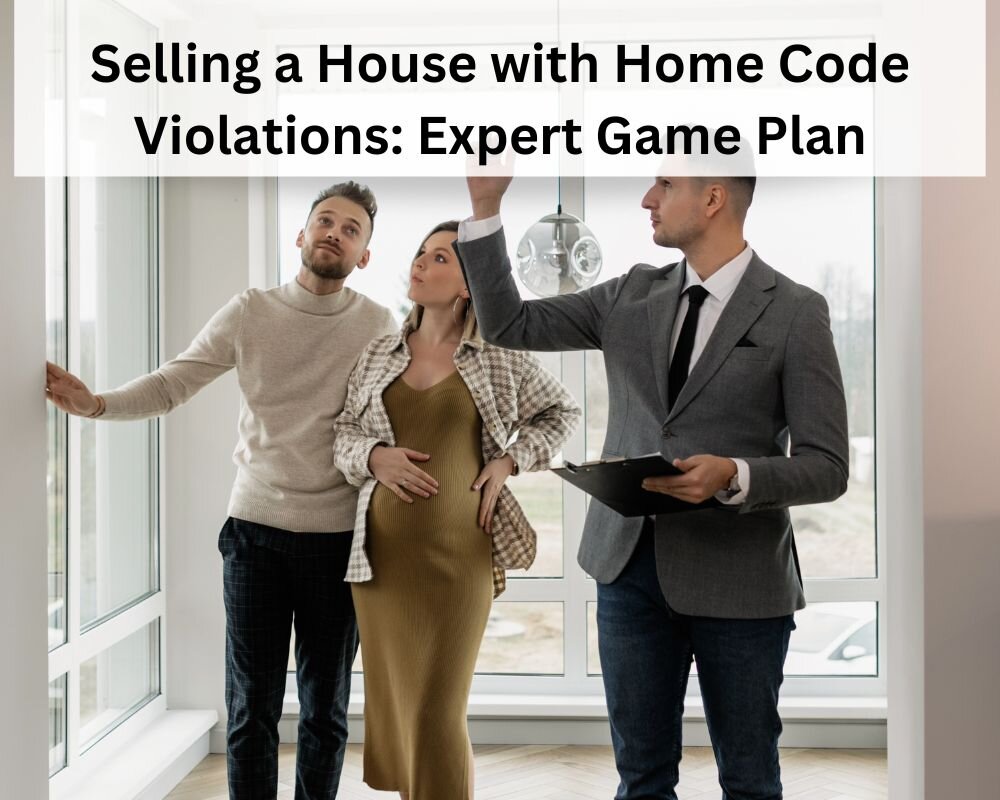
Selling a house that doesn’t meet certain safety and health standards might sound tough, but with a solid plan, you can pull it off. Right now, the market is really in favor of those looking to sell, which is good news for anyone wanting to navigate the current housing market. These rules are there to keep everyone safe and healthy at home. If your house doesn’t follow these rules, it could be dangerous and might need fixing before you can sell it. Usually, newer houses don’t have this problem as much as older ones do after people have lived in them or made changes.
If you find out your house has these issues during an inspection, try not to worry too much. It’s definitely possible to sort out these problems and go ahead with selling your place. This blog aims to help by explaining what home code violations are all about, including common types of violations such as building code violations, along with how one can still manage to sell their property despite having such issues.
Key Highlights
- Selling a house with code violations is possible the strategies
- Home code violations are standards that ensure and health in homes- Common types of code violations include misplaced smoke, improper plumbing fixtures inadequate lighting, and deck flashing -owners have options for selling house with code violations such as bringing the up to code, offering credit or lower price or selling the house-is
- Trying to sell house with code violations seem like a daunting task but it is not. With the right and options, homeowners can sell their homes profit and quickly, despite challenges that may arise due code violations.
- Home violations refer to standards regulations set in place ensure the safety and health individuals living in their. Failing to meet these codes can result violations, which may require homeowners to address the issues before selling their homes. New homes are less likely to violate home codes due to inspections during construction, but housing code violations can often arise in older homes or as a result of changes and additions made to the property.
- The good news is that homeowners don’t need to panic if homes have code violations. It is possible to fix these problems and still sell home. In fact, the current real estate market is favorable for sellers, it a great time to explore options for selling a house with code violations. In this blog, we will explore common types of home code violations in the and discuss various strategies for selling a house with code violations. Whether you choose bring your home up to code, offer a credit or lower price, or the house as-is, we’ll provide you with a game plan to navigate selling process successfully.
What are code violations?
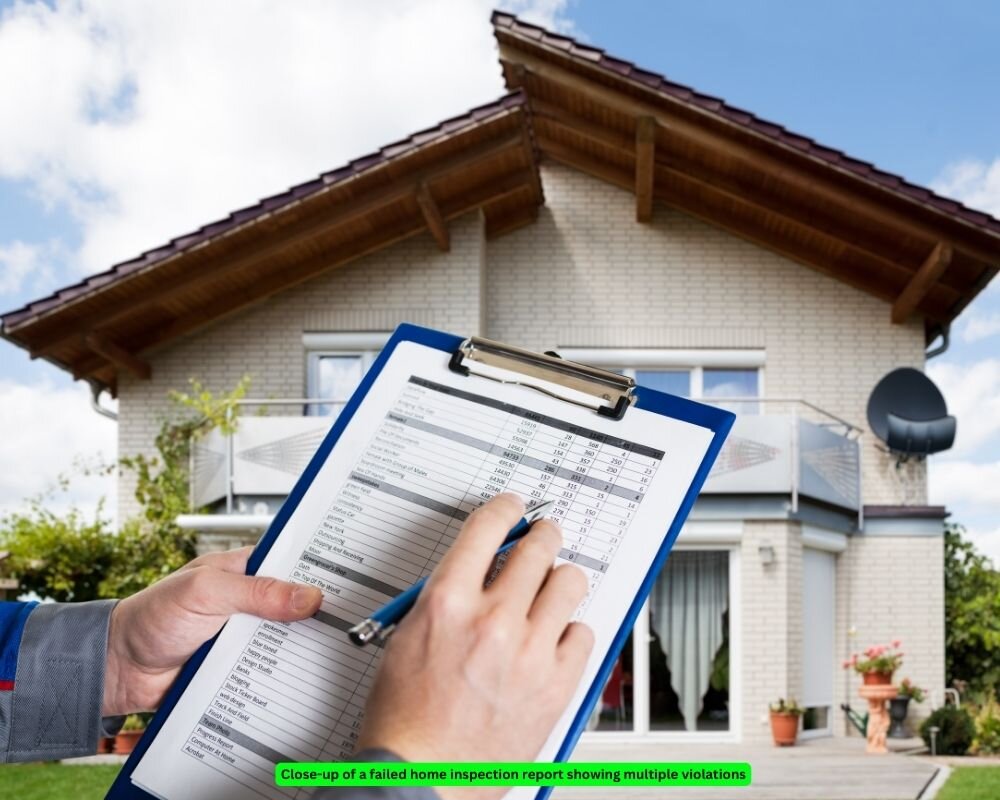
When a property doesn’t follow the rules set by home codes, we call these issues code violations. They can be risky for both the people living there and their neighbors. Before selling a house, you might need to fix these problems. Often, you’ll find things like smoke alarms not in the right place, plumbing that wasn’t done properly, lights that aren’t good enough, and missing deck flashing among common issues. Fixing some of these can be easy and cheap but fixing others might cost a lot more money and effort. It’s really important for anyone trying to sell their house to know exactly what’s wrong according to these codes because it could affect how well the sale goes. One way to easily test for GFCIs in your outlets is by using a GFCI receptacle tester, which can cost anywhere from $12 to $40. This simple tool can help identify any potential code violations, such as missing or defective GFCIs, and ensure the safety of your home from current changes. If any outlets need to be replaced, the cost is typically around $20 each. By addressing these code violations and using a GFCI receptacle tester, you can fix any issues, including outdoor circuits, and ensure a smooth sale of your home.
Related Post: What Does a Condemned House Mean in Stockton?
Common Types of Home Code Violations in the USA
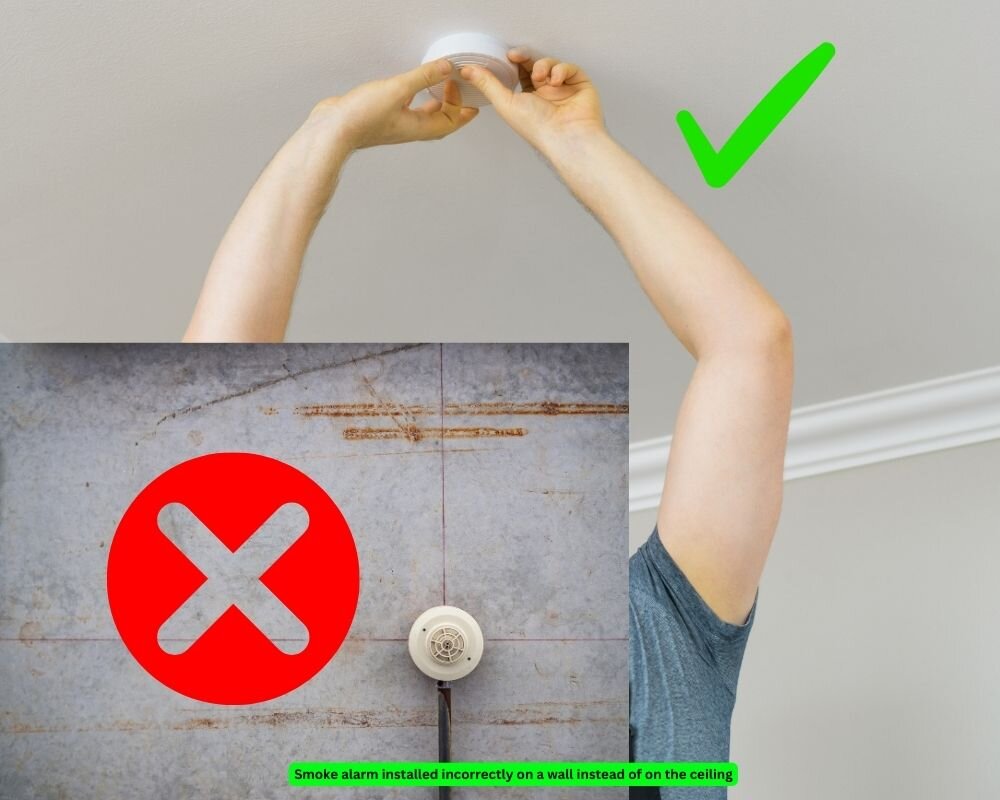
1. Misplaced Smoke Alarms
Putting smoke alarms in the wrong spots can be pretty risky because they might not catch smoke or fire quickly enough. It’s super important to put them where they should go, making sure you’re following what the building code says so that everyone gets an early heads-up if there’s a problem. You’ve got to have these alarms on every level of the house and close to bedrooms, and it helps a lot if they’re connected with each other for better safety. If you don’t stick to these rules, not only could you be breaking some codes, but also putting people and your home at risk.
2. Improper installation of plumbing fixtures

When it comes to your home, not setting up things like sinks, toilets, and showers the right way can cause a lot of headaches. This is known as a code violation in plumbing terms. Here’s what you need to keep an eye on:
- If these fixtures aren’t put in properly, you might end up with leaks or water damage.
- To avoid trouble, it’s best to get someone who knows what they’re doing—like a licensed plumber—or make sure you really understand how to do it yourself according to guidelines.
- Trying to fix or install these things without enough know-how could lead not only to problems but also breaking some rules that are there for safety and quality reasons.
- Before selling their house, owners should make sure any mistakes with plumbing have been fixed so everything meets the required standards and doesn’t create issues for whoever moves in next.
By paying attention here, we can prevent unnecessary damage and ensure our homes stay safe and sound.
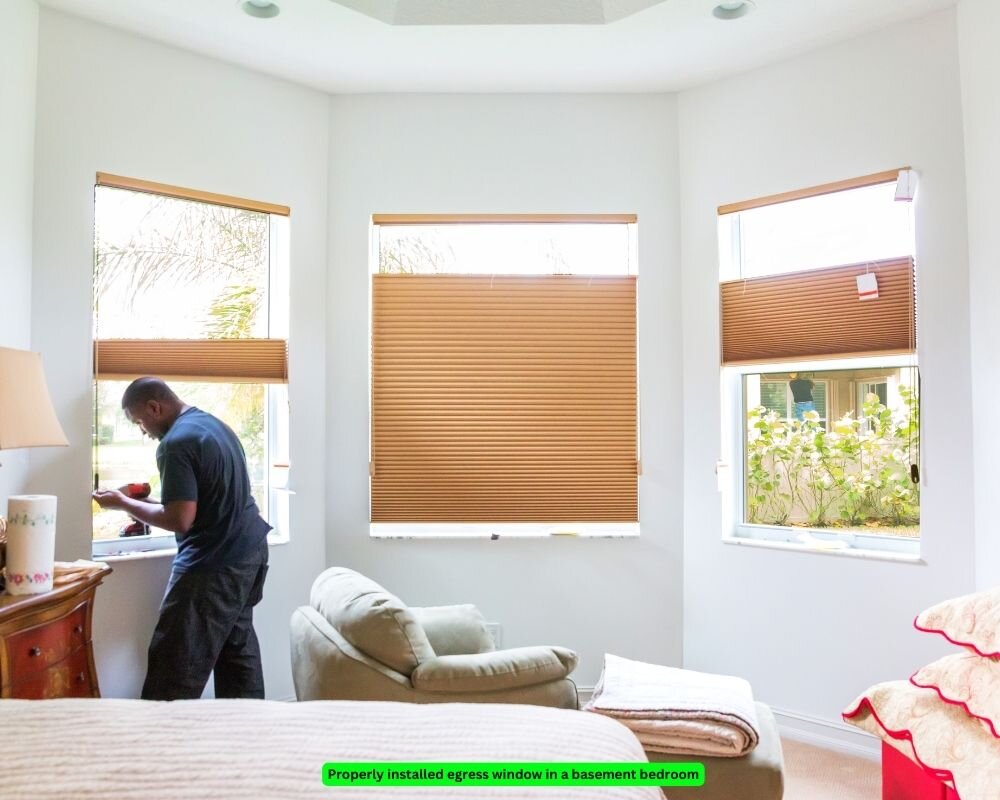
3. Egress window in basement bedrooms
Putting in a window you can get out of in basement bedrooms is really important for staying safe, but sometimes people forget about it. These windows are there to help you escape if there’s ever a fire or something else dangerous happening. Here’s what you need to know about having these kinds of windows:
- For starters, the window has to be big enough so someone can easily get out during an emergency.
- It needs to be at least 5.7 square feet clear space so an adult can fit through without trouble.
- The path leading up to this window should be clear and easy for anyone trying to use it as an exit route.
- If someone is selling their house, they’ve got to make sure any problems with these windows are fixed up right away. This makes sure the new folks moving in will be safe and that everything meets building rules.
4. Inadequate lighting

Not having enough light in a house is often against the rules and can make it unsafe or hard to use. It’s really important to have good lighting so you can see well and avoid getting hurt. Let’s talk about why not having enough light is a problem:
- When places like stairs, hallways, and outside areas don’t have enough light, it can be dangerous.
- Having plenty of light helps stop people from tripping, falling over stuff, or running into things.
- If someone wants to sell their home, they need to make sure every part of it has good lighting. This means fixing any problems with lights that might break the rules on what’s allowed.
So keeping your home well-lit isn’t just about making it look nice; it’s also key for safety and following housing codes.
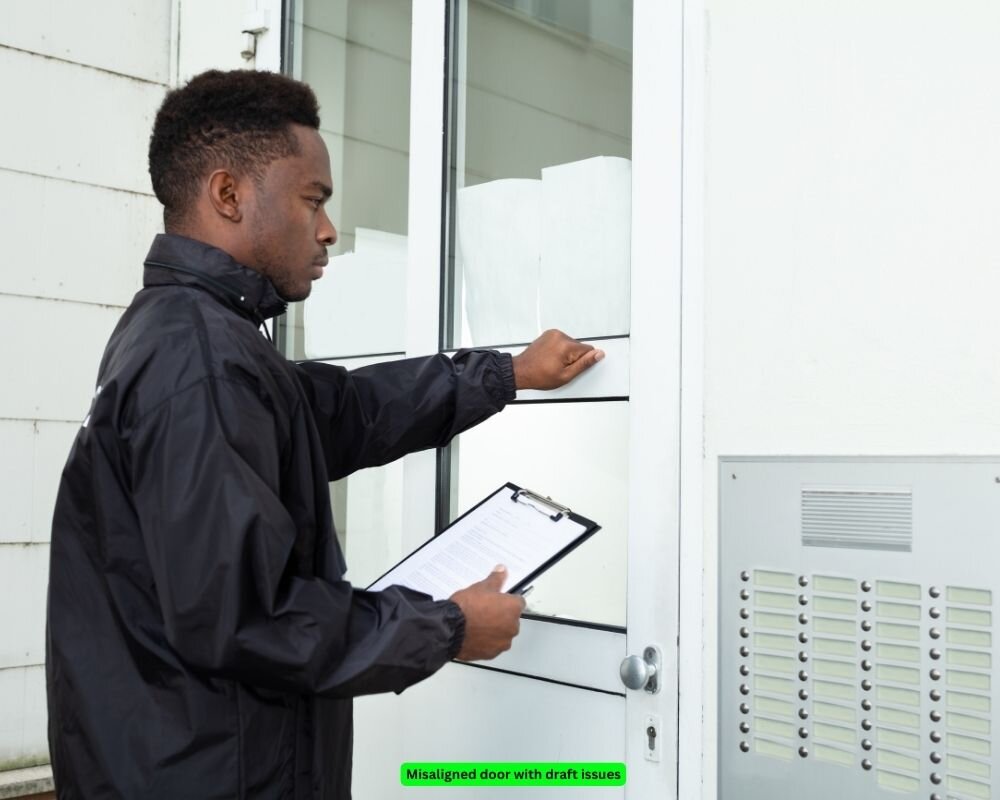
5. Doors
Another usual mistake is doors that don’t follow the rules of building codes. It’s really important for doors to be put in right and work well so everyone inside is safe and secure. Here are some things you should know about doors:
- They need to be set up correctly, line up just right, and have locks that work.
- Doors on the outside should keep out drafts with weatherstripping, which also helps save energy.
- Inside doors ought to let people have their privacy and not let sound travel too much from room to room.
- Before selling a house, any problems with how the doors meet code requirements or building codes should be fixed. This makes sure the house follows all rules it needs to for safety reasons.
6. Missing Deck Flashing.
When a house doesn’t have flashing between the deck ledger board and where it meets the home, it’s breaking building rules and can cause big problems. Flashing is just strips of metal or plastic that stop water from getting into the wood, which is essential for meeting local housing codes. Without these strips, water piles up, leading to rot which weakens both your deck and your house. It’s really important to fix missing deck flashing quickly so you don’t end up with expensive fixes later on while keeping your place safe and its value intact.
7. Fire blocking missing
Fire blocking is a key safety step that stops fire from spreading in hidden spots like walls, floors, and ceilings. Let’s talk about what happens if it’s missing:
- By keeping fire and smoke from moving around too much, fire blocking gives people more time to get out safely.
- If there’s no fire block where it should be, the building isn’t as safe. This could lead to more injuries or even deaths if a fire breaks out.
- Before selling their house, sellers need to fix any issues with missing fire blocks. This makes sure the house meets all the rules for being safe and sound for whoever lives there next.
8. Electrical Issues
When it comes to electrical problems, they’re often found breaking the rules and can be pretty dangerous. If things aren’t set up right or the wiring’s old, there’s a bigger chance of fires starting or someone getting shocked. Here are some important bits about dealing with electricity safely:
- For any work involving electricity, it should always be done by folks who have the proper license and know how to follow safety rules and building codes.
- It’s crucial to fix any issues like old wiring, circuits that have too much going on, or anything else wrong with your electrical setup to keep your home safe.
- Before selling their place, owners need to make sure all these electric-related rule breaks are sorted out to avoid any code enforcement violations. This is not just about following laws but also making sure whoever lives there next won’t face any dangers.
9. Handrail Issues
When it comes to making sure a property is safe, problems with handrails are often found. Handrails help people keep their balance on stairs and in high places. Here’s what you need to know about issues with handrails:
- For safety and easy access, handrails must be put in the right way and follow certain rules about how tall they should be and what they look like.
- If there aren’t any handrails or if they’re not set up correctly, there’s a bigger chance someone could fall or get hurt.
- Before selling their home, owners should fix any problems that don’t meet building codes related to handrails. This makes sure the house is safe for whoever moves in next.
10. Not Following Fence Height Requirements
If you don’t stick to the rules about how tall your fence can be, you might end up breaking some local laws and having trouble with people living nearby or the folks in charge. Here’s what you need to keep in mind when it comes to how high your fence should be:
- In places where people live, there are often specific rules that say how tall a fence can get.
- If your fence is too tall, neighbors might complain, and this could lead to fines or even legal problems for you.
- Before selling their house, owners should make sure their fences aren’t too tall according to local standards and fix any issues related to this.
11. Improper Bathroom Venting
A lot of times, when people set up their bathroom fans, they don’t do it the right way. They let the fan blow all that steamy air into the attic instead of outside where it should go. This is a big no-no called a code violation and can be a problem if you’re trying to sell your house, particularly in a competitive housing market. When all that damp air gets into your attic, it can make wood start rotting and mold to grow in both the attic and bathroom areas, leading to potential health hazards and costly repairs. To fix this issue, homeowners have to change where their vent goes so it sends air outside through either the roof or side of the house, effectively removing moisture from the bathroom. Sometimes you might need someone who knows what they’re doing to help out with this job. By taking care of this venting problem and properly removing moisture, sellers will not only follow rules but also make their home more attractive and valuable for anyone looking to buy.
12. Structural issues
Another common problem that can mess with selling a house is when there are structural issues. This means things like cracked foundations, not enough protection on circuits and outlets, and decks not properly attached to the house. These problems can be big deals requiring lots of money to fix or replace stuff. If these kinds of issues pop up during an inspection, property owners might have to pay a lot to get their home up to standard. Whether they decide to fix these code violations depends on how much the home is worth, how serious the problems are, and if the homeowner has enough cash for repairs. Sellers need to think hard about how bad any structural issues are and figure out if it’s smarter financially fixing them or just selling the house as it stands.
13. Improper Permitting
Another common issue that can mess with selling a house is not getting the right permits, known as a code violation, which can be identified and rectified by a code enforcement officer. This happens when homeowners decide to add on to their home or make big changes without first getting the okay from the city or town. For instance, putting in an extra bathroom or installing large appliances and not having a permit for it falls under this mistake. If you’ve done something like this without permission, you might have to pay fines and fix your home so it meets building standards before you can sell it. However, one of the most common code violations seen amongst Florida homes is improper permitting for home improvements, such as adding a new room or installing a pool. If a homeowner fails to obtain the proper permits for these changes, it can result in costly fines and delays in the selling process. It is important for homeowners to routinely mow their front lawn and maintain their property to avoid any potential code violations.
How Code Violations Affect Home Value
When a house breaks the rules, it can really affect how much it’s worth. People looking to buy a home usually stay away from ones that don’t follow these rules because they could be unsafe or unhealthy. On top of that, getting a loan or insurance for such houses can be tough. So, homes with these issues often sell for less money than those without any problems. If you’re thinking about selling your place, you should know how breaking the rules might lower its value and think about fixing these issues first.
How Code Violations Affect Home Value
When a house doesn’t follow the rules, it can really drop in value. With these issues, people looking to buy might not be as interested, which means the house could sell for less money. On top of that, getting a loan for such a home can be tougher because banks often don’t want to lend money for houses that aren’t up to code. Also, if your house has these problems, you might end up paying more for insurance since it’s seen as riskier. It’s key for anyone selling their home to know how much this stuff can affect their property’s worth and think about fixing these issues before they try to sell.
Preparing to Sell a House with Code Violations
Before you think about selling a house that doesn’t meet all the rules, it’s key to figure out how serious these issues are. You need to decide if you’re going to fix them up or just sell the place as it is. Think about how much fixing everything will cost, how it could change what your home’s worth, and whether you can afford those repairs. By law, you’ve got to tell any possible buyers about these problems too. Sometimes, dealing with someone who pays cash for houses like yours might be easier because they’ll take care of the rule-breaking stuff after buying your home from you.
Assessing the Severity of Your Home’s Code Violations
When you’re trying to sell a house that doesn’t meet all the rules, it’s key to figure out how big of a deal these issues are. Some problems might be small and easy to fix on your own. However, some could be bigger headaches needing lots of work or new parts. It’s smart to get help from someone who knows houses well, like an inspector or builder, so they can tell you exactly what’s wrong and how bad it is. Bringing in a code enforcement officer can also provide insights into any local housing code violations. You’ll need to think about if these issues could hurt anyone’s health or safety, how much money and time it will take to make things right again, and if fixing them will change what your home is worth. Understanding all this helps sellers decide whether they should fix everything up before selling or just sell the house as-is with its current problems.
Deciding Whether to Fix Violations or Sell As-Is
When it comes to selling a house that doesn’t meet certain rules, property owners have to think about whether they want to fix the issues or just sell the house as it is, risking potential liens for non-compliance. This choice really depends on how serious the problems are, how much money and time it would take to sort them out, and what effect fixing them would have on the value of their home. By dealing with these issues, you can make your home more appealing and might even bump up its price. But this could mean spending a lot of money and taking quite some time. On the other hand, for those property owners who don’t want or can’t afford to fix these problems, there’s another option: selling directly for cash to buyers who don’t mind buying homes exactly as they stand now – faults included! These buyers often offer an easy way out because they’re used to buying properties no matter their condition.
The Role of Cash Home Buyers in Selling Homes with Violations
When it comes to selling homes that don’t meet all the rules, cash home buyers can be a big help. These folks are in the business of buying houses just as they are, even if there are some issues with them not following local housing codes. They make things easy for sellers by taking away the need to fix anything up or do any updates. With their knowledge, cash home buyers quickly figure out what a house is worth based on its current state and then offer a fair price to buy it right then and there. This route can really work out well for people who either can’t or don’t want to deal with fixing these code problems themselves. By going with a cash buyer, those looking to sell can skip over all the hassle and expense that comes with getting everything up to code before handing over the keys.
Why Consider a Cash Home Buyer for Your Property
When it comes to selling a house, especially one that doesn’t meet all the rules and regulations, going with a cash home buyer can be a smart move. These buyers are experts at dealing with properties just as they are, even if there are issues. For sellers, this means not having to fix anything or spend extra money and time getting the house ready for sale, especially if there are existing code violations within the property. With cash home buyers, they look at what your property is worth right now and make you an offer based on that – no need for any changes from your side. This route offers sellers a straightforward way to sell quickly without any complications from code enforcement violations.
How Cash Home Buyers Facilitate a Hassle-Free Sale
For property owners looking to sell their homes without the headache, cash home buyers are a great option. Especially if you’re dealing with code violations, these folks step in and buy houses just as they are. With them around, there’s no need to fix anything up or make any changes. They’ll take a look at your place, figure out what it’s worth based on its current state, and then offer you a fair price for it right away. This way, sellers can skip all the hassle of fixing code issues themselves. After buying the house, cash home buyers will do all the repairs and renovations needed on their dime. For property owners wanting an easy sale process that doesn’t involve sorting out those pesky violations themselves, this route offers peace of mind and makes selling straightforward.
Navigating the Sale Process
When you’re trying to sell a house that doesn’t meet certain rules, it’s important to think things through and make a good plan. By law, if your house has any issues like these, you need to tell people who might want to buy it. It’s also smart to talk with experts like home inspectors or builders so they can check how big the problems are and help you decide what to do next. You could fix up the house so everything is okay again, lower the price or give some money back because of these issues, or just sell the house as it is for cash. Each way of handling this has its own upsides and things to consider carefully before deciding which path is best for selling your place.
Essential Steps in Selling Your Home with Violations
When you’re trying to sell a house that doesn’t meet certain rules, there are some key things you need to do. For starters, it’s important for homeowners to be upfront with people looking to buy the place about any issues by sharing details in writing about what’s wrong and what fixes have been made. Next up, getting advice from experts like home inspectors or builders is crucial, especially when addressing potential code violations within the property. They can help figure out how serious the problems are and suggest what steps should be taken next. Then, homeowners need to think over their choices on how they want to fix these issues – this could mean fixing everything up accordingto standards, cutting down the asking price or offering a deal where buyers get money off so they can handle repairs themselves or even selling “as-is” directly for cash without making any changes. By stickingto these guidelines,you’ll make sure everything is done right and meets all necessary legal requirements duringthe sale.
Disclosure Requirements for Sellers
By law, sellers have to tell potential buyers if there are any code violations with the property. This makes sure that buyers know exactly what they’re getting into before they decide to buy. Sellers need to give written proof of these issues and let the buyer know about any fixes or changes that have been made to meet current code. If a seller doesn’t share this information, they could end up in trouble legally and might have to pay for any problems or repairs the buyer has to deal with later on. By being open about code violations, sellers help keep things clear between them and the buyer. It also helps buyers make smart choices when buying a property because they understand what needs fixing right away.
Watch out for signs like faulty wiring, plumbing issues, structural problems, or outdated systems. Check for missing permits or violations of code regulations. Hire a home inspector for a detailed examination to uncover any hidden violations that could potentially derail the selling process.
Selling a Home with Code Violations To Click Cash Home Buyers

For homeowners, finding a way to sell their house that has code violations without going through too much trouble can be really helpful. With cash home buyers, this becomes an easy option. These buyers are experts at buying houses just as they are, even if there are issues with the codes. They take a good look at what your place is worth in its present state and then offer you a fair price to buy it right away. This means sellers don’t have to worry about fixing those problems themselves, which can save them lots of time, effort, and money, especially when dealing with housing code violations. When selling your house to someone who pays in cash, the whole process gets simpler and quicker for homeowners looking for an effortless sale or those who prefer not doing any repairs before selling.
What are the consequences of having home code violations?
Home code violations can lead to fines, legal disputes, delays in selling the property, decreased property value, and even potential safety hazards. It’s crucial to address violations promptly to avoid these consequences and ensure a smooth home sale process.
Frequently Asked Questions
Can I sell a home with major code violations?
Sure, you can sell a house even if it has big issues with the rules it’s supposed to follow. But keep in mind, finding someone willing to buy might be tough because of these problems. It’s key to tell buyers about any issues right up front and think about either dropping your price or giving them some money off so they can fix these things themselves.
How do I find out if my house has code violations?
If you’re wondering whether your house is up to code, one way to figure it out is by bringing in a professional home inspector or a code enforcement officer. They’ll take a good look around your property and point out any issues that don’t meet the standards, including those related to public health. On top of that, reaching out to your local building department or code enforcement office can also give you info on any existing problems with your place related to code enforcement and public health.
What are the risks of selling my house as-is?
When you decide to sell your house “as-is” and it has some code violations, there are a few things to keep in mind. For starters, having these issues might make buyers think twice before they decide to buy your property. This could mean fewer people might be interested in buying your home. Also, if the problems are pretty big, you might not get as much money for your house or you may have to give something extra to the buyers so they feel okay about the deal.

Contact Us
We would love to hear from you! Please fill out this form and we will get in touch with you shortly.

